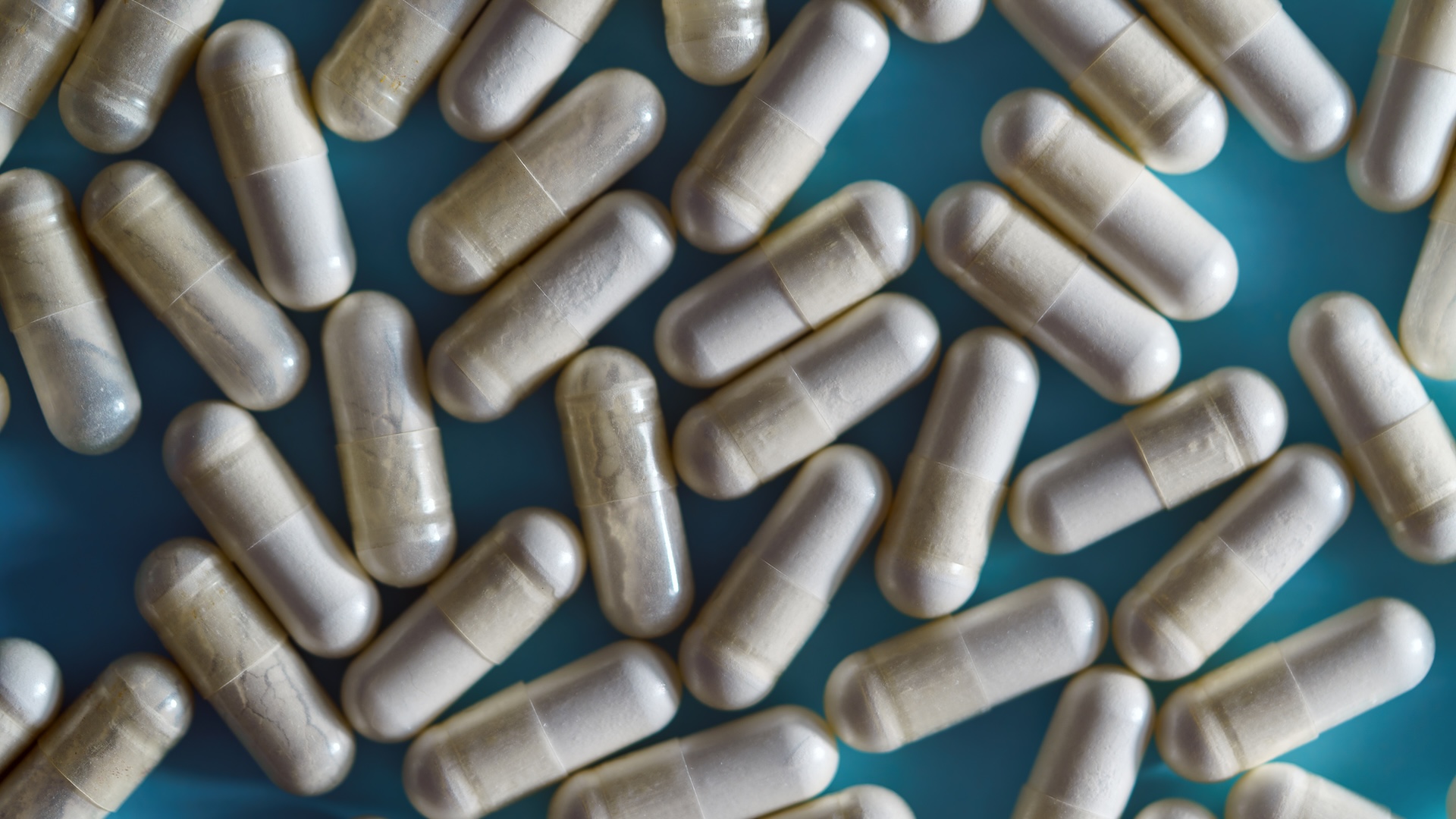Taurine is 'not a reliable biomarker of anything yet': Study challenges hype over 'anti-aging' supplement
Some studies suggested that declining levels of taurine, an amino acid, might be a key driver of aging. But a new study defies that idea.

Taurine — an amino acid found in some foods and also made by the human body — has been shown to slow aging in animals when given as a supplement, raising the idea that it might be a promising anti-aging treatment for people. But now, a new study has raised questions about taurine's relationship to aging.
The study, published Thursday (June 5) in the journal Science, measured taurine in the blood of three groups of people across adulthood, as well as in the blood of adult monkeys and mice. Some previous studies found that circulating taurine declines with age, which could help explain why taurine supplements improve certain signs of aging while extending lifespan — at least in lab animals.
Those previous studies had limitations, though. For example, most were "cross-sectional" — meaning rather than tracking the same organisms through time, they looked at many, different-aged organisms at one point in time. This approach has produced conflicting results, with different papers reporting either a decline, increase or stability in taurine levels with age.
To gain clarity, the new study included both cross-sectional and longitudinal data, the latter of which included blood samples taken at different time points from the same groups of people and lab animals as they aged. Ultimately, what the scientists found is that taurine didn't decline with age; instead, it increased or stayed stable across all of the groups studied.
What's more, the differences in taurine levels seen between individuals "generally is far greater" than the degree of change seen across adulthood, study co-author Maria Emilia Fernandez, a postdoctoral fellow at the National Institute on Aging (NIA), said at a June 3 news conference. Thus, low taurine is "unlikely to serve as a good biomarker of aging," she said.
"The main takeaway is that a decline in taurine is not a universal feature of aging," said Joseph Baur, a professor of physiology at the University of Pennsylvania Perelman School of Medicine who was not involved in the study.
Related: Human aging accelerates dramatically at age 44 and 60
Get the world’s most fascinating discoveries delivered straight to your inbox.
Nevertheless, the amino acid may still be tied to some age-related changes in the body, he told Live Science in an email, adding that, "given that other studies have shown benefits, including lifespan extension in mice, I think the case remains to explore the potential for taurine supplementation to improve health." That said, the new study doesn't make a strong case for or against the therapeutic value of taurine supplements, he clarified.
"There is a discrepancy"
The new study included data from more than 740 participants in the Baltimore Longitudinal Study of Aging who were between 26 and 100 years old. It also included data from over 70 people ages 20 to 85 who participated in the Balearic Islands Study of Aging, conducted in Mallorca, as well as data from about 160 people ages 20 to 68 in the Predictive Medicine Research cohort in Atlanta. The team also analyzed blood from rhesus macaques (Macaca mulatta) ages 3 to 32 and blood from lab mice ages 9 to 27 months old, roughly covering the ages from reproductive maturity to old age and death.
In most of these cohorts, "taurine exhibited an increase with age," Fernandez said. The only exceptions were male mice from one arm of the study and men from the Predictive Medicine Research group, both of which showed stable taurine levels through time. Scientists don't know why those two groups diverged from the overall trend.
The researchers also investigated whether taurine levels showed any association with health metrics that change with age, such as muscle strength. But the connections they found were "inconsistent within and across cohorts," undermining the idea that low taurine levels drive such age-related changes.
This aspect of the study wasn't exhaustive, though. For instance, a 2023 study of taurine found that supplementing taurine in middle-aged mice was linked to better sugar metabolism and less-extensive DNA damage in the animals, but the new study didn't look at these other aspects of aging.
Complicating the picture of what taurine does in health and disease, concentrations of the amino acid are known to differ among people with different medical conditions. For instance, people with obesity show lower taurine concentrations compared with people of lower weights, but when you cross the threshold into severe obesity, you see taurine surge, the study authors noted. In cancer, taurine goes up in leukemia but down in breast cancer, Fernandez added at the news conference.
And at baseline, taurine plays many roles in the healthy body, serving as a key component of bile salts, which are compounds made by the liver that help the body digest fat. It also helps boost the body's supply of antioxidants and build key proteins in mitochondria, the powerhouses of cells.
Taking all this complexity into account, can taurine levels be a proxy for anything?
"The short answer is no — it's not a reliable biomarker of anything yet," study co-author Rafael de Cabo, chief of the Translational Gerontology Branch at NIA, said at the news conference. "I think that we need to be digging into the basic mechanisms … before it can be used reliably as a marker."
Still, given that there are existing studies that suggest taurine plays some part in aging, scientists still see value in studying it further. Vijay Yadav, an associate professor at Rutgers New Jersey Medical School who co-authored the 2023 taurine study, is involved in an ongoing clinical trial to see if daily taurine supplements have any effect on aging in middle-aged humans.
"This trial, we hope, will generate sufficiently rigorous data to show — or not — whether supplementation delays the pace of aging in humans [or] increases health and fitness," he said at the news conference. For now, though, Yadav said there isn't clinical evidence yet to support taking taurine for anti-aging purposes, and the authors of the new study agreed.
Dr. Luigi Ferrucci, a co-author of the new study and scientific director at the NIA, said he thinks further study of the role of taurine in aging could reveal promising new avenues for treatment, even if those don't end up being taurine supplements.
"There is a discrepancy between different studies, and this discrepancy needs to be analyzed more in depth," Ferrucci said at the news conference. "They may reveal some important mechanisms with aging that could be … a target for intervention."
This article is for informational purposes only and is not meant to offer medical advice.

Nicoletta Lanese is the health channel editor at Live Science and was previously a news editor and staff writer at the site. She holds a graduate certificate in science communication from UC Santa Cruz and degrees in neuroscience and dance from the University of Florida. Her work has appeared in The Scientist, Science News, the Mercury News, Mongabay and Stanford Medicine Magazine, among other outlets. Based in NYC, she also remains heavily involved in dance and performs in local choreographers' work.
You must confirm your public display name before commenting
Please logout and then login again, you will then be prompted to enter your display name.
 Live Science Plus
Live Science Plus





